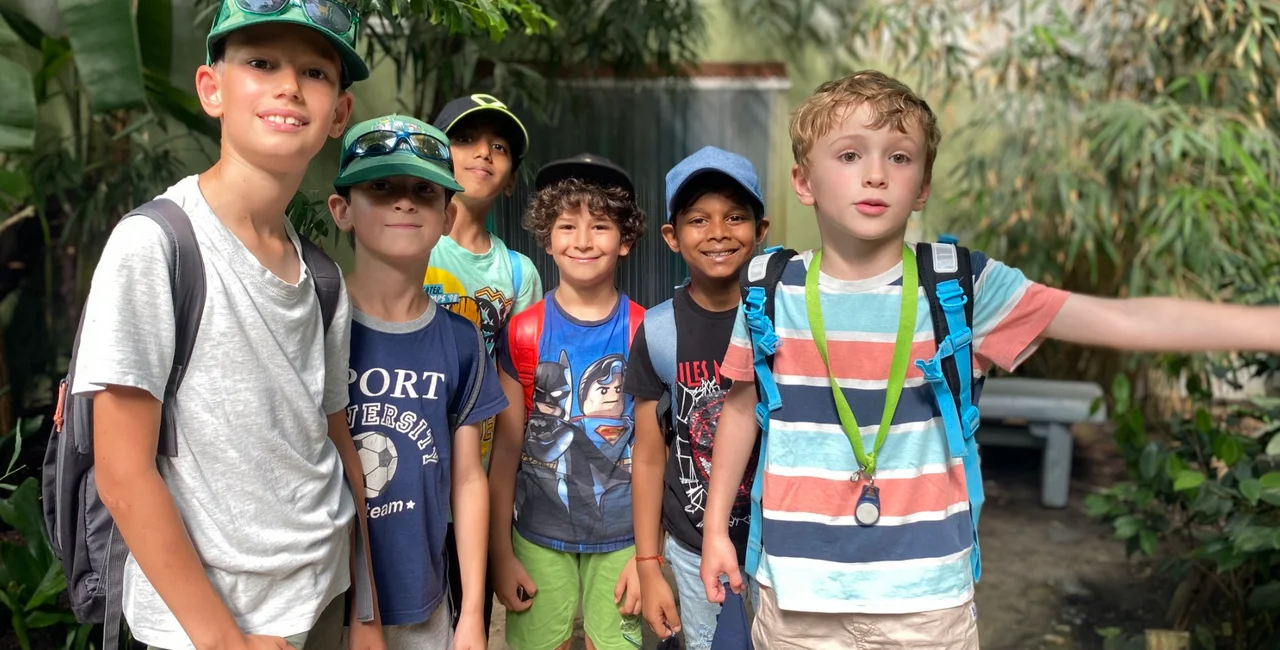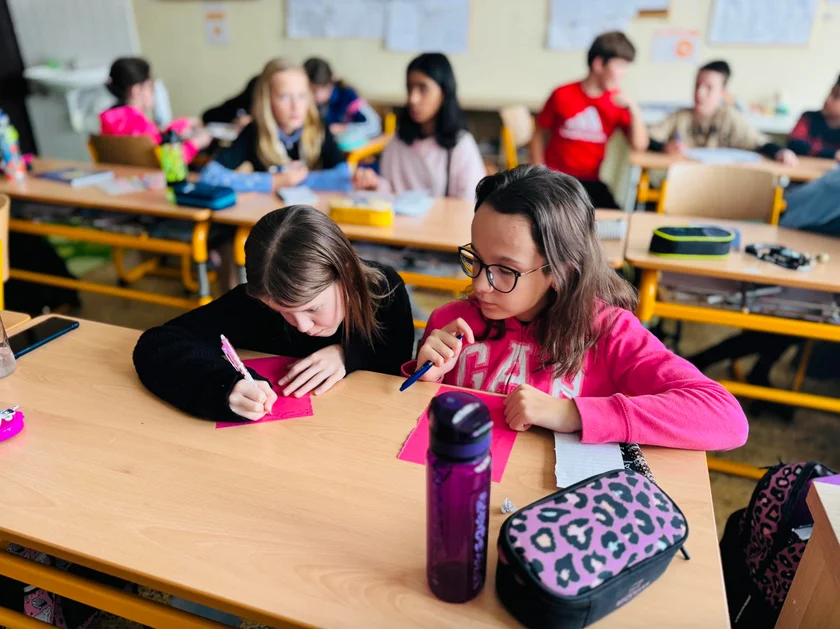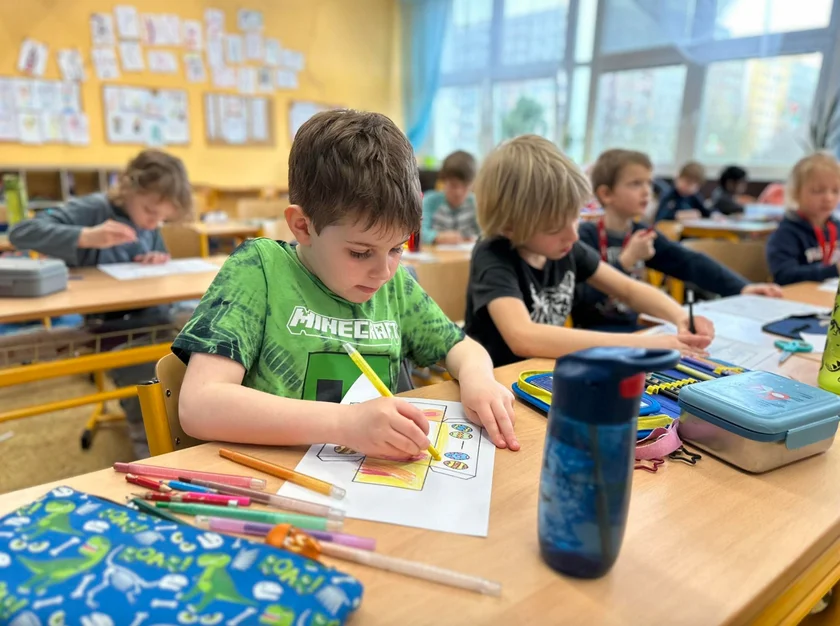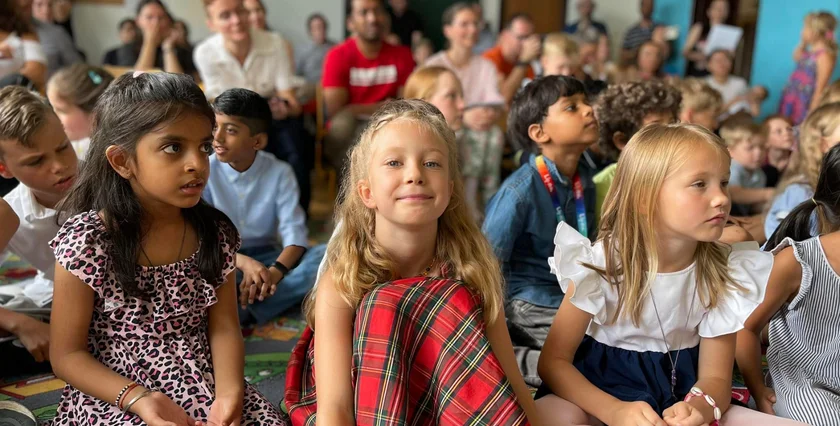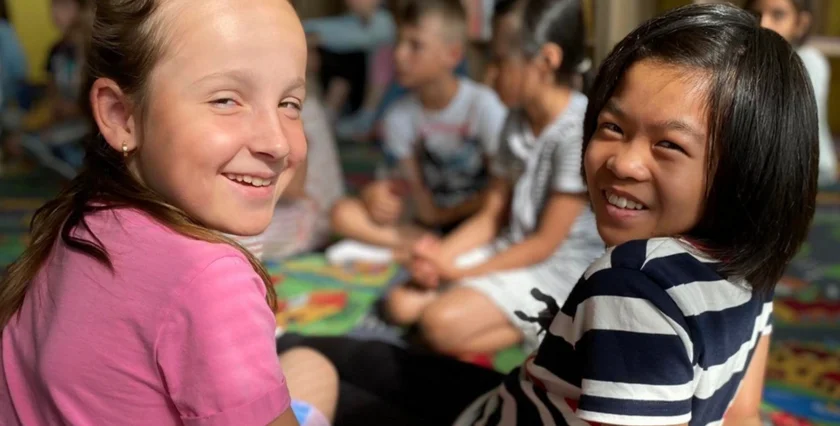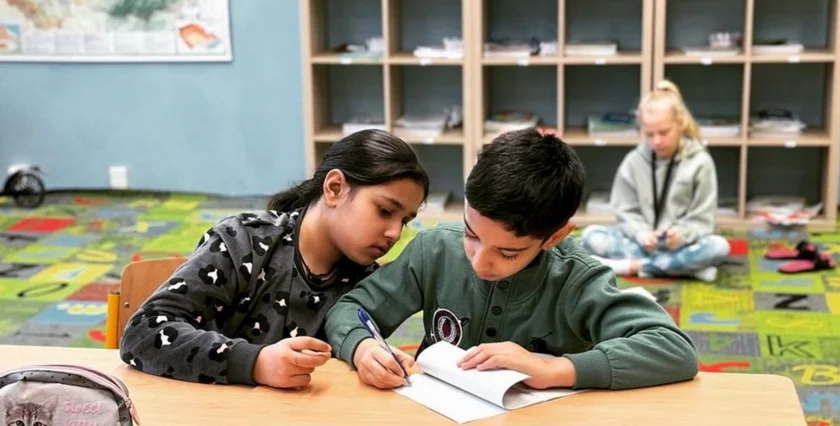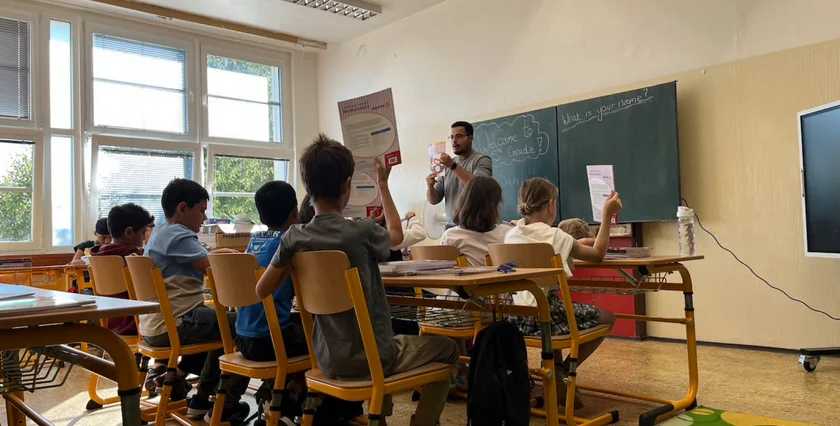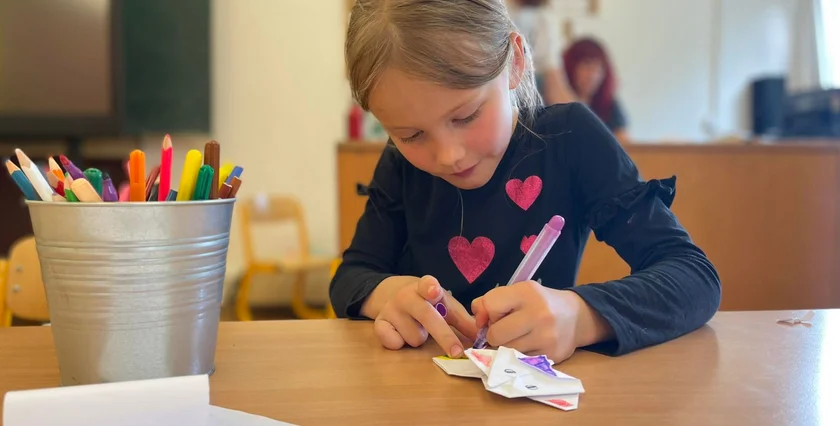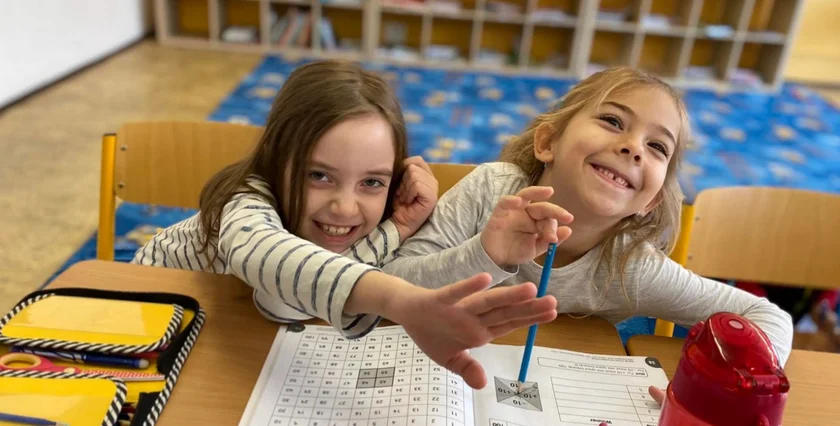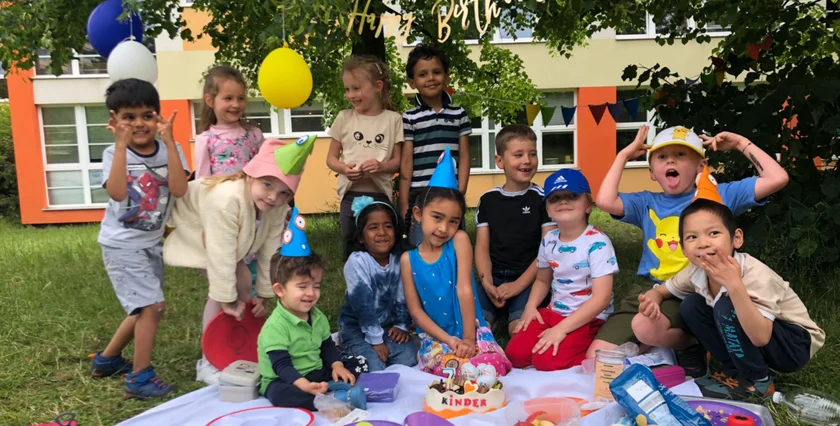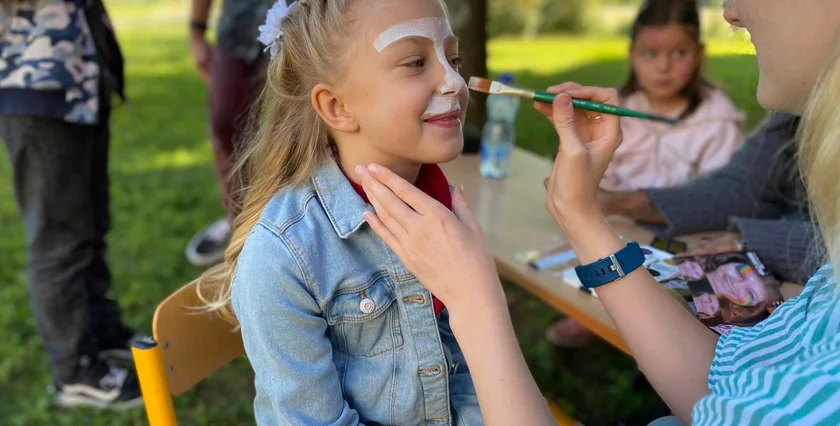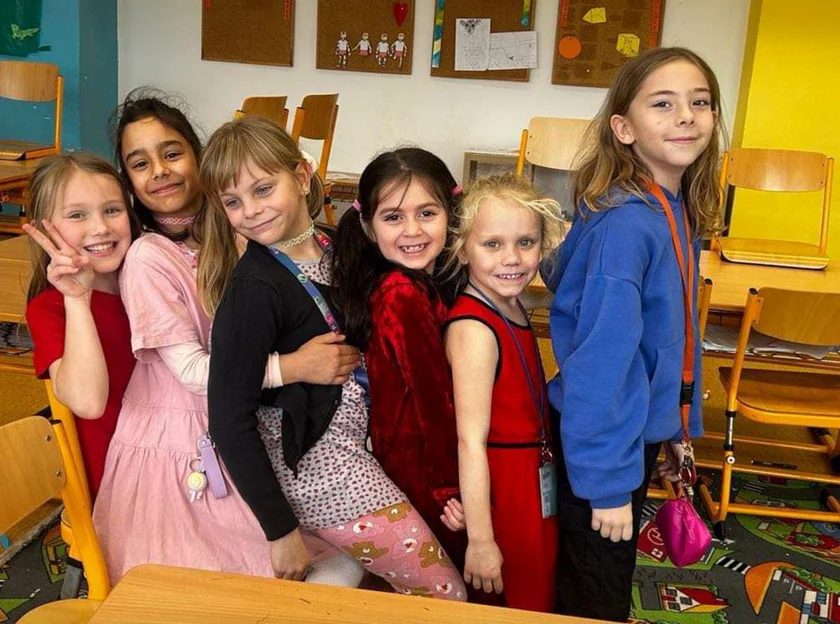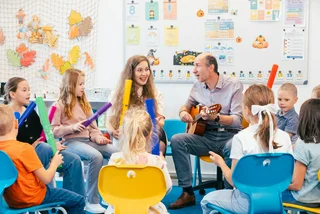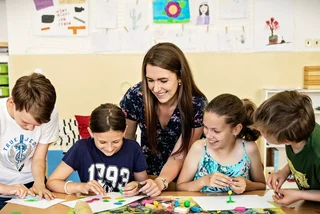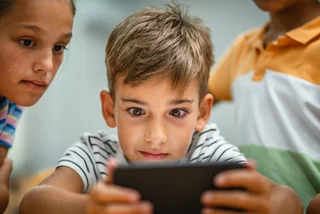Choosing an elementary school is one of the most important decisions parents will ever make for their children. Primary school sets the tone for later educational success and builds vital social skills. At international schools in Czechia, early language learning is another key focus, with education in English a priority for many expat parents.
One school in Prague is shaking up the international school scene with a bilingual offer that prioritizes English skills while emphasizing a solid grounding in the Czech language. With this philosophy, Anglofonní základní škola, providing both primary and secondary school education up to the ninth grade, enables children from international backgrounds to learn in their mother tongue while simultaneously equipping them with the Czech skills they need in order to fully integrate into local life.
Expats.cz visited the school to learn more about how it brings children from all over the world together in a highly diverse yet tight-knit international community.
English and Czech skills for life
English language skills are vital for many of those living an international lifestyle or working in a global context. It’s therefore no surprise that many expat parents living in Czechia seek out an education for their children in English, which in many cases is also the language they speak at home.
“Parents look for a school for their children where they can stick with the language they speak at home,” explains Zdeněk Dvořák, Director at Anglofonní základní škola. “Most of our families speak English for various reasons; sometimes the parents are from different countries, and sometimes they’re from countries where there are local languages but they frequently use English as their first language.”
More than 80 percent of pupils are non-Czech, and many of the Czech nationals attending the school come from international families and do not speak Czech when they join the school. It’s a truly diverse environment.
Zdeněk Dvořák, Director at Anglofonní základní škola"This school is registered with the Czech government and follows Czech educational standards. But Czech requirements are quite broad, which allows schools to tailor their standards and curriculum to reflect their goals, aims, and ideas.”
“Our school was established as a bilingual school,” he adds. “We have approval to teach most subjects in English, and we’ve created a curriculum to reflect this. We incorporate British curriculum elements by using textbooks from Cambridge University Press. In first and second grade, 60 percent of lessons are in English, and 40 percent are in Czech. As the grades get higher, the proportion of English teaching increases.”
According to Nicholas Doyon, Deputy Head Teacher of Secondary Education, “more than half of our seventh graders have B2 level English according to the CEFR. 25 percent of them are already at C1 level by this age, and by the end of the year, at least 50 percent will perform at an advanced level.”
The bilingual nature of the school is immediately evident when you walk from classroom to classroom. Native English-speaking teachers, many of them from the USA or India, are combined with Czech language teachers, and despite the school’s international make-up, the Czech language is ever-present both within classrooms and in public spaces.
“Most parents choose our school because we teach the Czech language too,” explains Zdeněk when discussing the importance of learning Czech. “These parents may be people who have decided to stay in this country long-term, so they choose a school that teaches in both languages. If a child joins us in a higher grade, as often happens, we provide Czech language lessons for foreigners so they can start from the very beginning.” This is the scenario for nearly all non-Czech children joining the school.
“For them, Czech is an entirely new language, and that’s why their parents don’t send them to Czech school,” says Zdeněk. “Here, they have most subjects in English, the language they understand, as well as some Czech lessons so that they become able to communicate in this country.” Most children can join regular Czech classes after a year of foundational learning.
The school requires English language capabilities from all new students, apart from the youngest children joining the pre-school section, where the basics of English are taught.
Sahil Bathija, the school’s Head Teacher, describes “an extraordinary surge in the growth of our student body. This achievement is a testament to our commitment to fostering an environment where children thrive. It’s heartening to see our school’s multicultural embrace, welcoming students from around the world, as we continue to nurture and expand our educational family.”
Opportunities for further education
A bilingual approach presents pupils at Anglofonní základní škola with wide-ranging opportunities. Strong English skills enable further study worldwide, while a solid grounding in Czech facilitates genuine integration into local society.
The school supports preparations for pupils aiming to subsequently join the Czech school system through two additional math lessons per week in Czech. Aside from these extra lessons, the school follows the standard schedule of Czech primary and secondary schools up to the ninth grade, with four or five lessons per day in lower grades and six or seven in higher grades.
Afternoons are devoted to a host of intriguing after-school clubs and extra-curricular activities running all the way until 6 p.m., with parents able to collect their children at any time. These after-school clubs, which take place in the main school building, include music, origami, board games, arts and crafts, 3D printing, reading, drawing, homework club, and even a golf club. Those eager to get a head-start on more language learning can join the Spanish club, embarking on their third language at a remarkably young age.
“Music, Spanish, and 3D printing are the most popular clubs among pupils at the moment. Homework club isn’t quite so popular!” jokes Zdeněk.
Conformity within the Czech school system also leads to another key selling point for Anglofonní základní škola: lower fees than at many comparable international schools in Prague due to government support.
According to Zdeněk, this comparative affordability means parents of children at the school tend to be successful professionals who have chosen to make Czechia home. By choosing a bilingual education, they’re equipping children with language skills that will help them thrive, either at home in Czechia or anywhere else worldwide.
This article was written in cooperation with Anglofonní základní škola z.ú. Read more about our partner content policies here.












 Reading time: 5 minutes
Reading time: 5 minutes 